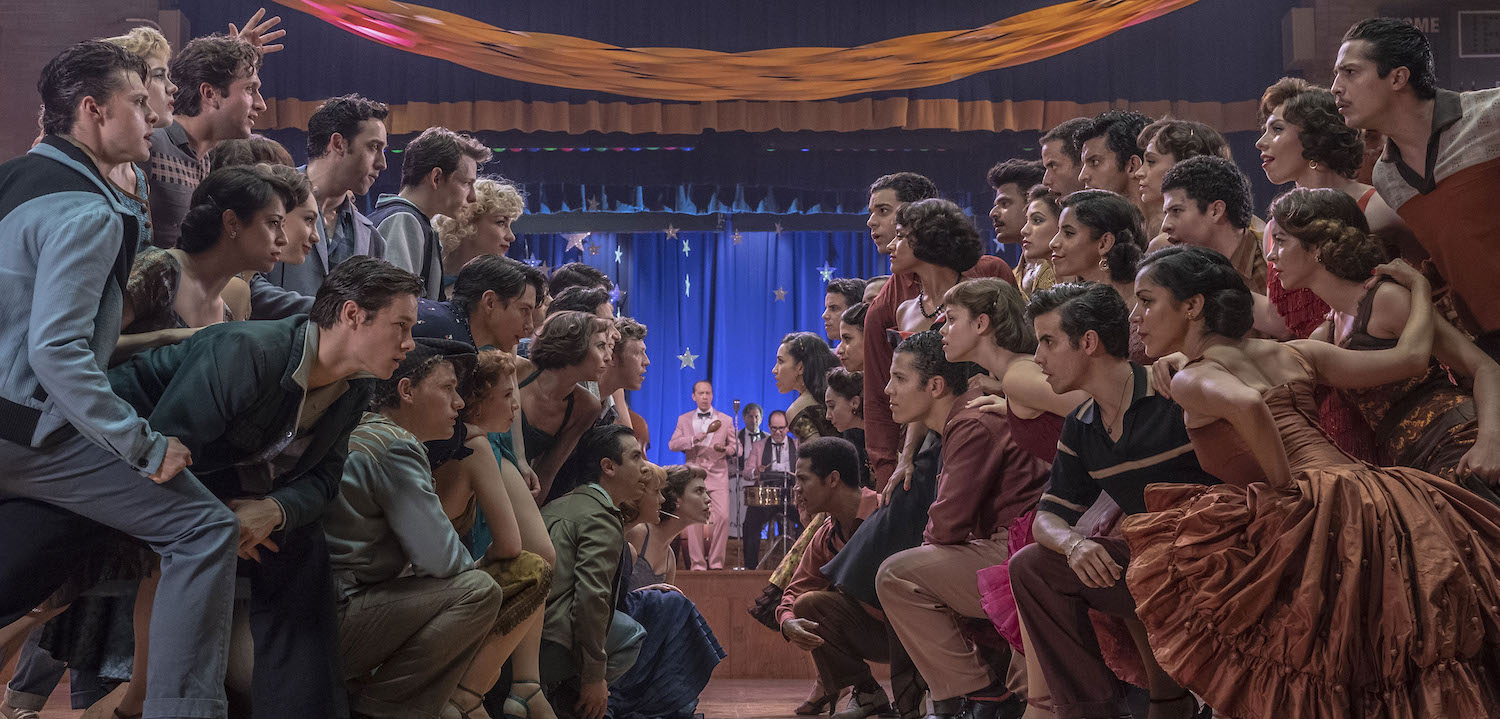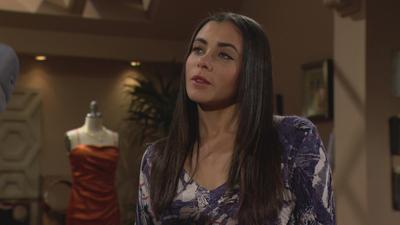What to Watch Verdict
Spielberg's first foray into the musicals arena delivers nonstop visual inventiveness, along with a slightly more pessimistic (or maybe just pragmatic) edge than you might expect from the cinematic dreamer.
Pros
- +
* Spielberg's palpable excitement with the material comes across in every frame, balancing movie-musical magic with gritty realism.
- +
* Performances by Ariana DeBose, Mike Faist, David Alvarez, newcomer Rachel Zegler and original 'West Side Story' vet Rita Moreno breathe new life into the characters.
Cons
- -
* Spielberg's reunion with cinematographer Janusz Kaminski produces some great moments but also suggests they should take a break from one another.
- -
* Spielberg and writer Tony Kushner's approach to this iconic material is intriguing but flattens the romance at the heart of it.
Adapted brilliantly by playwright Tony Kushner from the original material by Jerome Robbins, Leonard Bernstein and the late Stephen Sondheim, West Side Story is a triumphant, socially-relevant update that showcases Steven Spielberg’s excitement for staging the musical of his dreams while simultaneously offering a sense of purpose — if not necessarily meaning — to the seemingly unrelenting volatility that has defined the last year (or two).
In a year of joyful, vibrant musicals, West Side Story is kind of the anti-In the Heights, not a competitor but an unexpected counterpart, the pessimistic mirror image of Lin-Manuel Miranda’s ebullient celebration not just of New York City but Latinx culture. The fact that it’s directed by Spielberg, cinema’s inveterate dreamcatcher, makes this turn all the more surprising. But Spielberg’s incisive reimagining of the romance taking it back to what the original story (inspired by Shakespeare’s Romeo and Juliet) always was — a tragedy — feels as essential as the romance, joy and optimism of Miranda’s next-generation homage.
Ansel Elgort (Baby Driver) plays Tony, cofounder of the Irish street gang the Jets — who’s just been released from a yearlong jail sentence, after nearly killing a boy. His partner Riff (Mike Faist) has cultivated new ranks during his absence and targeted the Puerto Rican gang, the Sharks, as their biggest adversaries. Part of this hostility is due to their community’s growing presence in a neighborhood that was once firmly Irish. Despite Tony’s reluctance to return to a life of crime and violence, Riff convinces him to come to a community dance — attended both by the Jets and Sharks — to help set up a no-holds-barred fight for control of the surrounding territory. While there, Tony becomes distracted by Maria (Rachel Zegler), the beautiful younger sister of a promising Puerto Rican boxer named Bernardo (David Alvarez) — who happens to be the leader of the Sharks.
Maria notices Tony as well, and the two of them immediately fall in love, much to the consternation of Riff, Bernardo and the two warring communities that want nothing to do with each other. As the rumble nears, Tony and Maria must make a difficult decision — betray their friends and families to be with one another, or give in to a conflict that’s tearing the neighborhood apart just to avoid making it worse.
Robert Wise’s 1961 adaptation of the Broadway show is rightly hailed as one of the greatest movie musicals of all time — a detail that makes Spielberg’s choice to remake it a curious one. But even if Spielberg’s direction produces an almost nonstop barrage of gobsmacking images, it’s visually very different than Wise’s wonderfully stagy, Technicolor version. Reuniting with his longtime cinematographer Janusz Kaminski, Spielberg shoots either on real New York locations or sets built to look just like them. The pair create a look that still manages to convey a magical theatricality even when the characters are dancing in front of buildings that have been reduced to literal rubble.
In comparison to more conspicuously contemporary musicals — which employ a faster-paced visual and editorial style that pieces the dance numbers together almost like fight scenes — Spielberg uses longer takes and wider angles to show the full bodies of the performers in motion. The technique not only evokes classical musicals but allows the audience to admire the totality of the effort and hard work that goes into the acting and singing and dancing and stage direction and cinematography all at once. Spielberg’s orchestration of all of those pieces, moving in harmony, is absolutely masterful.
But, whether as a result of Spielberg’s exuberant celebration of every character, set and scene or the adaptation of Robbins’ original narrative by Pulitzer-winner Kushner, the main characters — Tony and Maria — seem to become much less important than they were in the original film. This is an unexpected, but welcome choice, as the story now drills down into much deeper and darker themes that were obfuscated by their whirlwind romance.
As skilled as Elgort and newcomer Zegler are, as singers and actors, the force-of-nature energy of these two communities is just irresistible to watch — as are the individuals that battle for control of it. Faist’s Riff is all hardscrabble resilience and desperate bravado — the counterpoint to the prideful ambition of Alvarez’ Bernardo. Their foot soldiers and supporters embody not just two different cultures but dispositions — the former scrambling not to die and the latter fighting to gain a foothold.
Rita Moreno, who won an Oscar playing Anita in the 1961 version, takes on the role of Valentina here. She is the widow of a shop owner who gives Tony a place to stay after his stint in prison and who embodies the wary, hopeful accord between the Jets and Sharks (and their respective cultures) that seems just out of reach. But, while Ariana DeBose steals the film as Anita (Moreno’s next-generation replacement), what eventually exerts the most influence on this new version is a melancholy sense of inevitability. Spielberg instills a feeling that the only thing that’s assured from taking this path of hate and violence is mutually assured destruction for everyone involved.
Ultimately, what Spielberg seems to be showing with his take is that the work of Robbins, Bernstein and Sondheim is timelessly relevant. Sixty years later West Side Story still possesses immediate, palpable and, not altogether encouraging, connections to what’s happening right now in the world. That’s a bold and bracing idea to embrace in what has consistently been seen as a cathartic expression of love, but, in his West Side Story, fear and hate only begets more of the same and not even two starry-eyed teenagers can repair what keeps getting re-broken. All of which makes the film decidedly less joyful than the previous version, but in its way just as important: where we can’t love, we must learn, or else we’ll lose.
This is a must-see whether you worship the source material or just want to be wowed by Spielberg’s take on it.
Todd Gilchrist is a Los Angeles-based film critic and entertainment journalist with more than 20 years’ experience for dozens of print and online outlets, including Variety, The Hollywood Reporter, Entertainment Weekly and Fangoria. An obsessive soundtrack collector, sneaker aficionado and member of the Los Angeles Film Critics Association, Todd currently lives in Silverlake, California with his amazing wife Julie, two cats Beatrix and Biscuit, and several thousand books, vinyl records and Blu-rays.












